This week I’m back with another excerpt from the “SUPER LEAN” seminar. Super Lean is a 2 part audio seminar about how to acheive very low body fat, break fat loss plateaus and lose the last stubborn 10 pounds. From Monday, February 11th through Wednesday, February 13th, I’m giving away this seminar for free at www.BurnTheFat.com with the purchase of the Burn The Fat program. As I promised last week, today I’m posting another excerpt from the seminar which will show you how you can “lose fat by eating pizza”…(No! I’m not kidding! You really can!
QUESTION: We’ve got a question here which is going to be useful for everybody, because probably everybody listening has their favorite foods that they don’t want to give up. For example, I love chocolate. A caller wanted to know, “Is it possible to get a flat stomach and six-pack abs and single-digit body fat while still enjoying your favorite foods like chocolate or pizza?” What’s your take on that, Tom?
TOM VENUTO ANSWERS: Of course it’s possible. You just have to eat small enough portions of chocolate or pizza so you’re still in a calorie deficit. In fact, you could eat 100% pizza and 100% chocolate diet and still lose weight. Heck, if a guy can eat 100% Subway and lose weight, why not 100% pizza?
All you need is a calorie deficit. Of course, I DON’T recommend you eat a100% junk food diet because that’s going to have a negative impact on your health. I’m just trying to make the point that fat loss revolves around having that calorie deficit.
We have some diet book authors, some of them who even have bestsellers on the top of the charts right now, who are spreading the same myth that diet gurus have been spreading for decades; they’re saying calories don’t count. That’s total B.S.
Calories in versus calories out is stating the law of energy balance, but apparently we have a group of people who claim to have figured out a way to avoid the laws of physics.
There’s actually an explanation of why they say that though. What these guys are usually trying to do is to give you a list of eating rules which makes it almost impossible to overeat. You could say that they’re “tricking you” into eating less. I wouldn’t say that’s necessarily a bad thing. If the foods you choose spontaneously make you feel fuller on less calories, I might even argue that’s a good thing.
But they’re misrepresenting how it works because there’s a huge difference between saying “don’t count calories” and “calories don’t count” but they’re lumping them together as if they were the same thing.
Do you see the difference between those two statements? If anybody listening doesn’t see the difference, then make sure that you get the difference, because it’s huge.
Suppose I tell you that the only thing you can eat is lean proteins (like egg whites, chicken, fish and green salads and other vegetables), lean plus green and I’ll also let you take in some essential fats and oils, to make sure you get all the essential nutrients.
Then suppose I say, “Don’t count calories; you can eat as much as you want.” I bet you’re going to have a really hard time eating in a calorie surplus, because I’ve removed food groups that are dense in calories, like starches and grains and sugars.
But does that mean that calories don’t count? No. It means that instead of counting calories you were given a bunch of eating rules that usually curb caloric intake automatically.
“Calories don’t count” is one of the worst myths out there because if people don’t understand the calories in versus calories out equation, they’re not going to be able to get past the plateaus that we just talked about and they’re going to start thinking there’s a cause and effect relationship between specific foods and gaining fat.
They’re going to figure, “Eating pizza equals getting fat.” It doesn’t. They’re going to think that eating chocolate equals getting fat. It doesn’t. It’s not a cause and effect relationship where “junk food” automatically turns into fat. Eating too many calories equals gaining fat.
Now if you take a pizza and you load that thing up with triple cheese and sausage and pepperoni and olives and just stack the calories in there, then you have a very calorie-dense food. Even though no food in itself makes you fat, calorie-dense foods, if you eat them frequently, are more likely to give you a calorie surplus.
Or some foods stimulate your appetite or don’t keep you full for long, so you end up eating more of other stuff later, and again, you’re likely to eat in a calorie surplus.
The bottom line? As far as your favorite foods go, my philosophy is that depriving yourself completely of your favorite foods is a great way to make yourself miserable and to be almost certain that you fall off your diet very quickly. My philosophy is allow yourself your favorite foods as long as you acknowledge that calories count and you obey the law of calorie balance.
This is one reason that I don’t prefer the full day off the diet or the free for all cheat day, because some people might interpret that loosely and they may almost feel obligated to see how much food they can eat and how much they can shove down their throats. They say, “Hey, it’s cheat day, so I have to cheat real good. I don’t want to miss out on this!”
They end up in a huge surplus and if they go so far over on the cheat day, when it all averages out over the week, they’re even and they haven’t lost any body fat.
Your best approach is to know your calorie target, or at least the ballpark, and inside that calorie target, give yourself a compliance rule.
One that works really well for me and for my clients is 90% compliance. I give you a list of clean foods like the ones that I mentioned before that include high nutrient density foods with all the essentials and I say, “Eat these 90% of the time. The other 10% of the time, eat whatever you want.”
If you look at it from this perspective, then you can see that there’s no such thing as forbidden foods. For most people, in the long run, any diet that gives you flexibility is going to work better than a diet that demands 100% “clean eating.” This is not only my personal belief, it’s also well supported in the clinical nutrition and behavioral psychology journals.
I hope you benefitted from this 2nd excerpt – feel free to leave your comments. I may post one more tomorrow if I have time.
To get more details about Burn The Fat, Feed The Muscle And getting this entire”Super Lean” Seminar for free (with the purchase of my burn the fat program), just visit the burn the fat website at the link below. But hurry, this is only a three day special promotion. it will expire on Wednesday, February 13th at midnight:
Tom Venuto
Fat loss coach


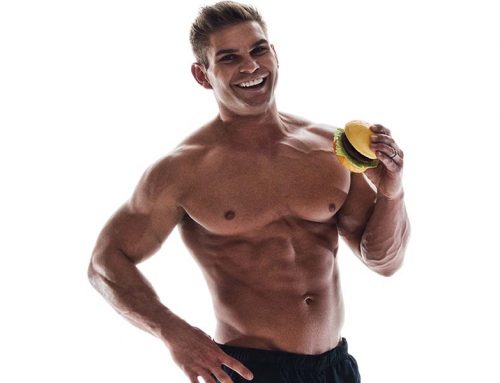
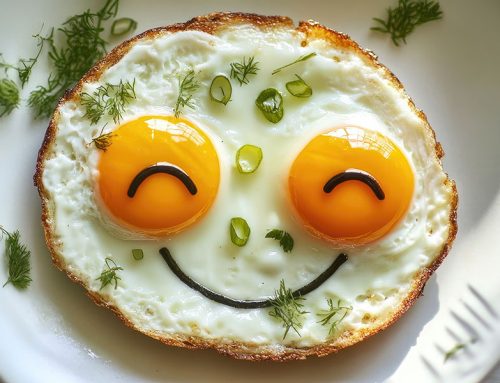
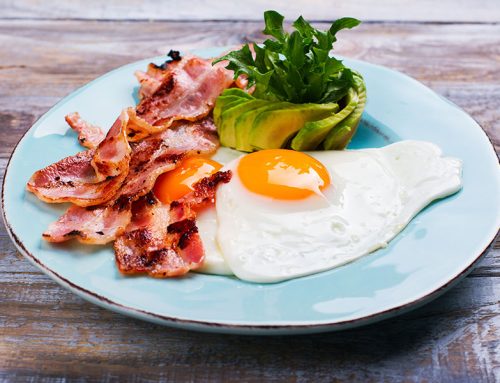
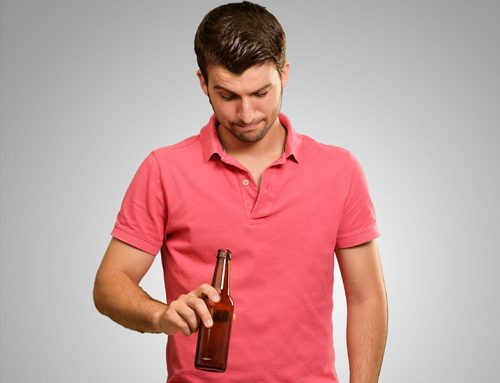
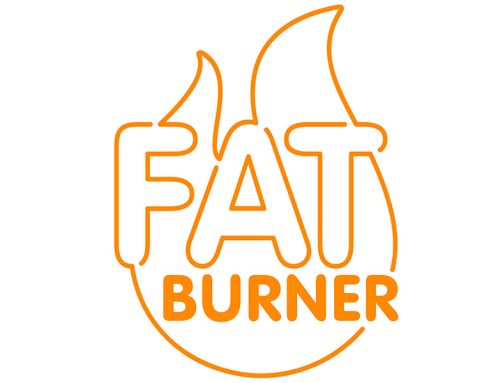
hi:this is soo exciting!oh my god! thats how i lost my 27 kgs and am still going… i had 38 kgs to loose… so 11 to go… i tell every one about the calorie deficit and how it matters more that the food types, but no beleives me…people see me eating pizza and salads with dressing and chocolate and cheeskakes and still lossing weight and they think i must be bulemic, or have an exceptionally high metabolism,or that i excercise my butt off.but the truth is i just took those foods in limited ammounts and healthy foods in larger ammounts and kept my calorie deficit..i ended up being always happy always up for the restuarant and movie trip and always up for house parties… never frustrated and never restless or irratic like most people who go on diets..i power walk 5 times a week and do resistance and weight training 3 times a week for 30 mins each…. when i hit a plateau i didnt increase my work out time i just increased the intensity, and the repetitions of weights(instead of increasing the weights themselves)…:) am soooo glad that TOM posted this… now i can forward it to my freinds and they will believe me !thanks alot TOM, ur advice always counts and sticks in my head… everything that i have done according to what u said really got results…thanks:)yours, amy..
Excellent excerpt from the Super Lean audio Tom.Here’s my favorite line:”They’re going to figure, “Eating pizza equals getting fat.” It doesn’t. They’re going to think that eating chocolate equals getting fat.”I hope that people really let that sink in. My wife Angie has been known to eat a cookie or piece of chocolate several days of the week. She’s not a slave to it and can just have a small portion.She remains in a calorie deficit because the bulk of her foods come from veggies and lean proteins.Even with eating a bit of junk many days of the week she’s still got 6 pack abs.She can still eat the foods that she enjoys and burn fat at the same time.Thanks a lot for sharing these awesome tips Tom. Your blog is one heck of a fat loss resource and you’re one heck of a role model.Scott Tousignant, BHK, CFChttp://www.Unstoppable-FatLoss.com
Thanks for ur advice.It is really quite useful.I can now once in a while eat my fav food with the calorie count on my mind and not feel guilty about it.Thanks a ton .
I’ve been using BFFM for 6 months now and have lost 11.6 KG. I’ve always gone for the 1-2 cheat meals a week to keep me sane and it works really well. I also allow myself 2 small squares of dark choc a week and still lose weight. It’s great to see someone giving sensible advice that still allows flexibility and freedome with food instead of a prescriptive diet.
All That Written in burn the fat is correct. Its nice to read what you have said in the book. But for me im a mother of two and a housewife i cant afford to go to a gym but exercise at home . Before i want to a gym, i did my exercise and i bought some tea also i lost weight but now the gym is closed theres only one other gym left, only for bodybuilders and theres no exercise equipment in the shop and when it comes the gyms buy them because its expensive. I thank you for your programme and newsletters, hope you’ll continue to help me more. Goodbye!
While I understand this excerpt, and its value, I would like to take the other side of the argument – why some say calories don’t count.The idea that a calorie is a calorie – from any source – is the basis for the calorie-counting, if-intake-is-less-than-output method of losing weight.But there are variables that aren’t taken into account by this idea: Namely, that your body responds to an intake of 250 calories from carbohydrates defferently than when you consume 250 calories of fat or protein. The differences are in how the body processes these nutrients: the hormonal response. In turn, the hormonal response is dependent on more than just the quantity and composition of your intake. Things like your health, fitness, how long it has been since you last ate, your current nutritional condition, and many more things play here.This is the argument for low carbohydrate diets, and why many of their proponents feel you don’tneed to watch your calory intake when you follow the diet. It isn’t because they are secretly giving you no options that will allow the overconsumption of calories, as you imply. It is that they feel you can better regulate your body’s insulin response, and therefore, what your body does with the calories you consume.The law of thermodynamics you refer to hasn’t been repealed by these folks at all. That law applies to the behavior of energy in a CLOSED SYSTEM. It is simply that they see the law’s limitations when you are discussing the human digestive and metabolic processes, which are not, as an interacting and highly variable group, closed systems.Now, I’m not saying that the principles you espouse are wrong, because I think they are solid. But you can be right, and so can those who have other theories about weight loss.
Ken thanks for your intelligent post.Yes, there are many variables that affect the energy balance equation. In other words, energy balance is dynamic. If thats what you mean by the human body NOT being a closed system, then we are agreeing with each other.Variables include how the body proceses various macronutrients and different foods. Also the effect of the foods you eat on your hormones and your appetite, and thus future food consumption and total caloric consumption at the same meal if food quantity is not measured. Then you have thermic effect of different foods, and even fiber intake.This is is why you will not hear me say “a calorie is just a calorie”. or “all calories are created equal” – I am arguing that the statment, “calories dont count” is incorrect. I am also arguing that eating small quantities of pizza, chocolate or other foods that are usually considered “totally off limits” will not turn into fat if you are in a calorie deficit. AND, lastly, I am arguing that the claim, “if you remove carbs, you can eat as much protein and fat as you want and still lose weight” is also incorrect. Incidentally the FTC says its illegal to say that in advertising weight loss products.There are thermodynamc and hormonal advantages that can be obtained with certain eating plans, but they are minimal in the overall scheme of things, and they don’t DISprove the law of calorie balance, they PROVE it, if you follow their effects through to their pratical implications in the context of body composition (the effects of certain diets on health may be a completely separate discussion than body composition).Let me see someone with a 2000 calorie per day maintenance level eat 3000 calories per day of protein and fat (almost no carbs) and see what happens (you will get fat) You CANNOT each as much as you want (just by restricting one macronutrient) and still lose fat.factors which affect the energy balance equation, include the thermic effect of food, or non-absorbable calories as in fiber, but this does not negate the energy balance equation, again, it confirms it.For example, high fiber foods do not have all their caloric value absorbed, most passes through the body. which means that those calories do not even enter into the calorie balance equation. Thus the recommendation to eat high fiber foods.Similarly, there is a thermic effect of food, which is the energy required to digest, absorb and assimilate the food. The thermic effect varies by macronutrient. Protein has the highest thermic effect of all – 25% or possibly as high as 30%. whereas dietary fat has only about a 3% thermic effect.which means, at a 30% thermic effect, if you consume 100 calories of lean protein, you actually only absorb 70 of them…this does not negate the energy balance equation, once again it proves it. 30 calories were required (burned) to digest the food. Thats part of your energy expenditure. the energy IS accounted for.if you compare two diets then with the same calories, and one is 30% protein and the other is 15% protein, the diet of 30% protein may result in slightly more weight loss via dietary thermogenesis.however, if you control (experimentally) for protein intake and or caloric intake then little ro no difference is found in the weight loss results. Low carb diets often produce greater weight loss. But look closely at the studies. Most were infree living humans who self reported food intake. Take a much closer look at the low carb diets that controlled for food intake in a lab setting.I dont argue that a calorie is not a calorie. A diet of 2000 calories of lean protein, essential fats and fibrous carbs and veggies will not have the same body composition effects as a 2000 calorie diet of coca cola and white bread for the reasons mentioned above. The difference on health will also be dramatic.Regarding hormones. food can affect hormones, as can lifestyle factors such as sleep, stress, pre existing health problems, obesity and training status/ level of fitness. Some hormones affect the energy balance equation. If you eat in a way and live a lifestyle in a way that a hormone like thyroid or leptin are affected, that can affect your metabolic rate. ie, you burn fewer calories and lose less weight. again does this disprove the energy balance equation or prove it? it proves it – youre burning fewer calories… the energy IS accounted for, the energy in versus energy out equation has simply shifted…so the point is- energy balance is DYNAMIC and complex – but energy balance is always there!Also some hormones dont affect metabolic rate, but they DO affect nutrient partitioning. energy balance determines WHETHER you will lose or gain weight (surplus or deficit). Hormones that affect nutrient partitioning affect WHAT you will lose or gain (where the calories are partitioned – do they go into fat or into muscle? If youre in a deficit you COULD lose muscle not fat and if youre in a surplus you COULD gain fat and not muscle, right? hormones and training inparticular affect that.As you cansee this gets complex fast.. but it can be simplified by giving some easy behavior recommendations like telling people that calories count – so be diligent about portion sizes, and by telling people that small amounts of their favorite foods will not sabootage their efforts if they obey the law of calorie balance and eat healthy nutrient rich foods most of the timeBy the way, I have NO anti low carb agenda. Actually, I see advantages in a moderate (not high) carb diet for lifestyle and I see advantages in a low carb (but not ketogenic) diet for fat loss and i use a variation of low carb diet for bodybuilding compeition myself.regardstom venuto
Hi TomFirstly, as this is my first post, I would like to say how much I enjoy your blog with it endless and useful information.I get so confused my the array of diets out there. I lose weight so much better on a low carb diet (with weights and exercise) but can only last for so long (6-8 weeks) before I binge because I miss my favourite foods. So I love the idea of a cheat day or a few little treats a week.I just was wondering if you could clarify your comments in the post above….’I see advantages in a low carb (but not ketogenic) diet for fat loss’My query is why not ketogenic???? I assume this means ketosis????I am following a program where I eat 6 meals at about 3 hour intervals…..the only carb I have is in the morning (starchy or fruit) with protein. Lunch and dinner are protein with unlimited vegies (not starchy) and the snacks are protein only which I can have up to every hour if I wish. I achieve over 10000 steps per day too.Thank you so much
Whaddup Tom …I have been a reader of your masterpiece “BFFM” book and consulting it like if it were an encyclopedy,and also a follower of your posts in this site but I have one question:Regardless of cheating a bit eating pizza,whatever..how abut when u are in pre-contest preparation for a show ? what about GI and insulin spike?
Hi Tom,When I mentioned to my clients that they can eat pizza or chocolate and still lose weight, many of them were so shocked to hear that.Then I followed on to say that it doesn’t give them the green light to binge.And you’re right that there is a difference in eating for health vs. eating for weight (fat) loss. Many people got mixed up and mess up on this.And I agreed with you that it’s okay to eat your favorite (junk) food once in a while as long as you know your calorie balance.Thanks for your honest revelation. I’ll keep coaching my clients on these aspects. Carey, CPT
Hi TomSpeaking of Pizza and crap, er, fast food. I am driving across the U.S. on Monday, coast to coast. I have been going very well since after the holidays with 5-6 small meals and activity; cardio and weight. I’m loving the results as always.What I am concerned about it the 4 days of sedentary activity on the road; driving. I am considering going into a caloric deficit for the first few days to edge off some extra fat but really am worried about what to eat and where? I’d rather not run through a drive through every 3 hours to get a chicken breast sandwich and was wondering what kind of snacks and goodies could I stock up on that could fit in my already filled up truck; I don’t want to use a cooler (No room). I want to have a gallon of water everyday and a little coffee for morning and evening driving, but what can I eat ? I won’t be in a position tomake sandwiches or cook or even prepare.I also waonder if my calories should stay under a resting metabolic rate ? I’m guess around 1800 ?FYI – It is a 36 hour drive and I anticpate 4 days on the road.At the end of my trip is a certain young lady and I want to be optimal (Wink wink).
I have been using the BFFM system for a year and have experienced fantastic results! I have told everyone about this program, how easy it is, and how it’s changed my life! I can’t thank you enough, Tom, for creating it!With that said, I had a conversation with a male friend today who told me his personal trainer had told him not to worry about calories and that it all balances out. After I picked myself up from the floor, I told him to run as fast as he could away from this trainer because his philosophy is that “it all evens out”. NO it doesn’t! I think some trainers are just appealing now to the lazy side of people instead of telling them the truth.I’ve had four hour workouts and then went out to eat pizza – I can tell you it sure as hell didn’t “even out” because I got fat! I can’t believe any trainer would give such lousy advice to friend who’s around 75-100 pounds overweight. My friend dismissed me and in the end he’ll lapse and gain back his weight, but to ignore the basics of calories in versus calories out is just suicide that unravels all your hard exercise work. I wish more people could understand that reality.It doesn’t “all even out” – it’s like pulling a snag in a pair of nylons….before you know it, they’re ruined.